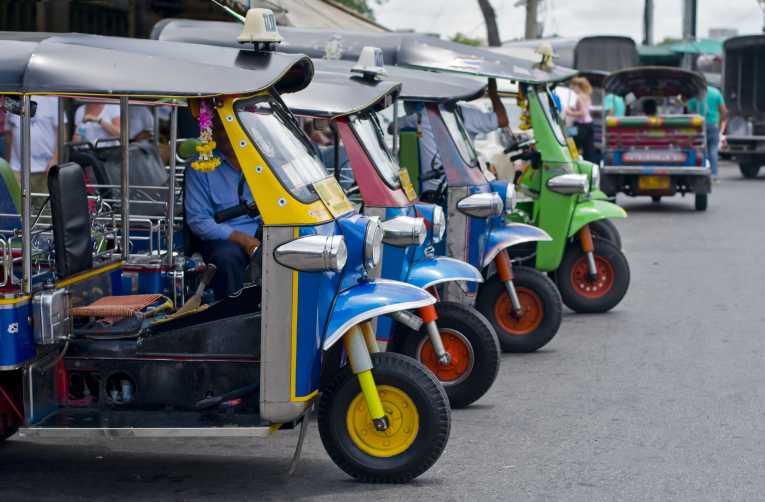Switching to clean fuel must be a good move and towns and cities worldwide are doing just that with their transport fleets. One such city was New Delhi in India. In 2003 the city converted 90,000 buses, taxis and auto-rickshaws to compressed natural gas (CNG), a well-known 'clean' fuel.
Unfortunately, according to a new University of British Columbia study, the New Delhi switch was not the 100% success that had been hoped for.
Auto-rickshaws are a common form of transport in Asia and Africa and there are more than 5,000 in the New Delhi transport fleet. The study found that using CNG in the auto-rickshaw’s two-stroke engines produced only minor reductions in the emissions that cause air pollution and there was actually an increase in the emissions that have a negative impact on climate change
According to the researchers, if the two stroke engines of the auto-rickshaws had been converted to cleaner, more fuel-efficient four-stroke engines, the New Delhi programme could have achieved greater emission reductions at a cheaper price.
Lead author of the study, published online in the journal Environmental Science and Technology, was UBC post-doctoral fellow Conor Reynolds. Dr Reynolds commented that, ''… our study demonstrates the importance of engine type when adopting clean fuels. Despite switching to CNG, two-stroke engine auto-rickshaws in Delhi still produced similar levels of particulate matter per kilogram of fuel to a diesel bus and their climate impacts are worse than before.''
The study is the first of its kind and it involved extensive laboratory testing. It seems that as much as a third of CMG is not properly burned in two-stroke engines. As a result, high levels of methane are produced and this is one of the major greenhouse gases. CNG use also produces substantial emissions of high particulate matter from unburned lubricating oil, which produces the characteristic blue smoke.
The researchers suggest that their findings show the importance for policymakers to be in possession of strong scientific data before making important decisions. It also illustrates the need to consider small vehicles like auto-rickshaws in their emissions programmes.
''If policymakers have information about emissions and their potential impacts,'' said Dr Reynolds, ''they can make better decisions to serve both the public and the environment.''
The researchers feel that the study also has broader implications for the design of public health. A co-author of the report was Dr Miland Kandlikar, Associate Professor at UBC’s Lui Institute for Global Issues and Institute for Resources, Environment and Sustainability.
Dr Kandlikar points out that while clean fuels are being used in Indian cities for transportation, many more lives could be saved if these fuels were used for cooking. ''The interests of the rural poor, particularly women and children are being put below those of the urban consumer.''
Although the number of two-stroke auto-rickshaws in New Delhi tops 5,000, several Asian cities have even more. The researchers say that their study provides important information to other cities where fuel-switching programmes are currently being considered and major auto-rickshaw fleets exist.










